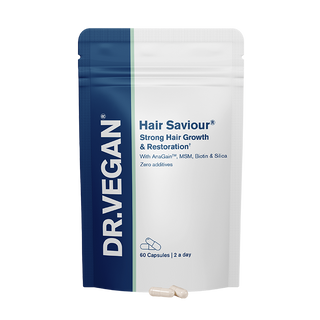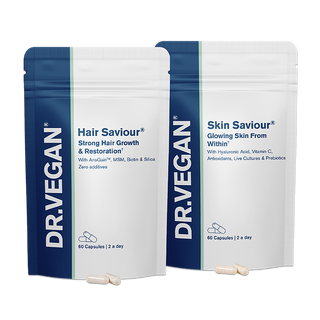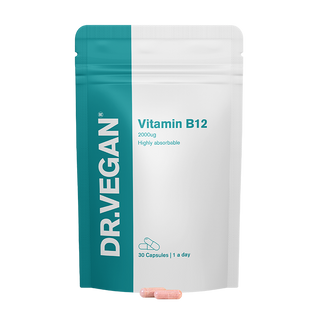Understanding premature grey hair

Grey hair is a natural part of ageing, but premature greying raises questions about underlying deficiencies and potential reversibility for some. Here, we discuss the phenomenon of premature grey hair (PGH), its causes and the role of deficiencies, hormones, and nutrients in its development and prevention.
Understanding premature grey hair
Causes and risk factors
Genetics is a leading factor in PGH, with a family history of premature greying increasing the likelihood of its occurrence. Additionally, stress, smoking, certain health conditions and a deficiency in essential nutrients can contribute to the premature loss of hair colour. You may be interested in reading 'Ultimate advice for hair loss, from an expert nutritionist' and 'Best foods for hair loss & thinning'.
Deficiencies and grey hair
Research suggests deficiencies in key nutrients, such as copper, Vitamin B12 and other vitamins, may be linked to premature greying. Copper, in particular, is essential for producing melanin, the pigment responsible for hair colour. Insufficient levels of vitamin B12, along with other vitamins and minerals, may also contribute to the premature loss of pigment. Read more on the '5 key nutrients for healthy hair' or discover 'Why Zinc is so important for your immune system, hair & skin'.
Can vitamins reverse grey hair?
While there is no guaranteed method to reverse grey hair, addressing nutrient deficiencies, especially in Copper and Vitamin B12, may slow down the process or prevent further greying. Adequate intake of these nutrients through a balanced diet or supplements may help support overall hair health. You may be interested in our award-winning, vegan Vitamin B12 2000ug.
Hormones and grey hair
Hormonal changes can also influence hair colour. Imbalances in hormones, including thyroid hormones, may contribute to premature greying. While the relationship between hormones and grey hair is complex, maintaining hormonal balance through proper medical care and lifestyle choices may help prevent early greying.
Hair Saviour®

Reversibility of premature grey hair
The reversibility of PGH depends on various factors, including the underlying cause. While addressing nutritional deficiencies and adopting a healthy lifestyle may slow down the process, a complete reversal is challenging. However, early intervention and proper care can help manage and potentially improve the condition. If you're wondering what nutrients your body may be missing, create your free Diet Profile and find out in 3 minutes.
Preventing premature grey hair
To prevent premature grey hair, maintaining a nutrient-rich diet is crucial. Foods high in Copper, B vitamins, Iron and antioxidants can support melanin production and overall hair health. Additionally, managing stress, quitting smoking and adopting a healthy lifestyle contribute to preventing premature greying. Discover '6 big signs of stress' and 'Foods to help boost energy and reduce stress'. You may also be interested in reading 'Can vaping cause anxiety?'.
Did you know that anxiety and stress, and their impact on mental health is now a global issue? According to Ipsos Global Health Service Monitor 2022, mental health is now the second biggest health concern. Read the latest customer survey on the effects of stress and anxiety.
Beauty Bundle

Nutrients to fight against grey hair
Incorporating specific nutrients into your diet can promote hair health and potentially slow down the greying process. Foods rich in Copper, including nuts, seeds and mushrooms, can be beneficial. Additionally, Vitamin B12, along with a diet abundant in fruits, vegetables and whole grains, provide essential nutrients for maintaining vibrant hair. Try our range of delicious, healthy, vegan recipes.
Premature grey hair is a phenomenon influenced by genetics, lifestyle and nutrient deficiencies. While complete reversal may be challenging, adopting a holistic approach that addresses nutritional needs, hormonal balance and overall wellbeing can contribute to healthier and potentially more colourful hair. By understanding contributing factors, individuals can take proactive steps to maintain their hair's vitality and delay the onset of premature greying.
You may also enjoy reading:
- Does Rosemary Oil help hair growth?
- Is MSM good for hair growth and strength?
- How menopause affects your skin and hair
- Castor oil for hair: benefits, uses & side effects
Want to hear more from our nutritionists? Sign up to our email newsletter for insights and exclusive offers:



















